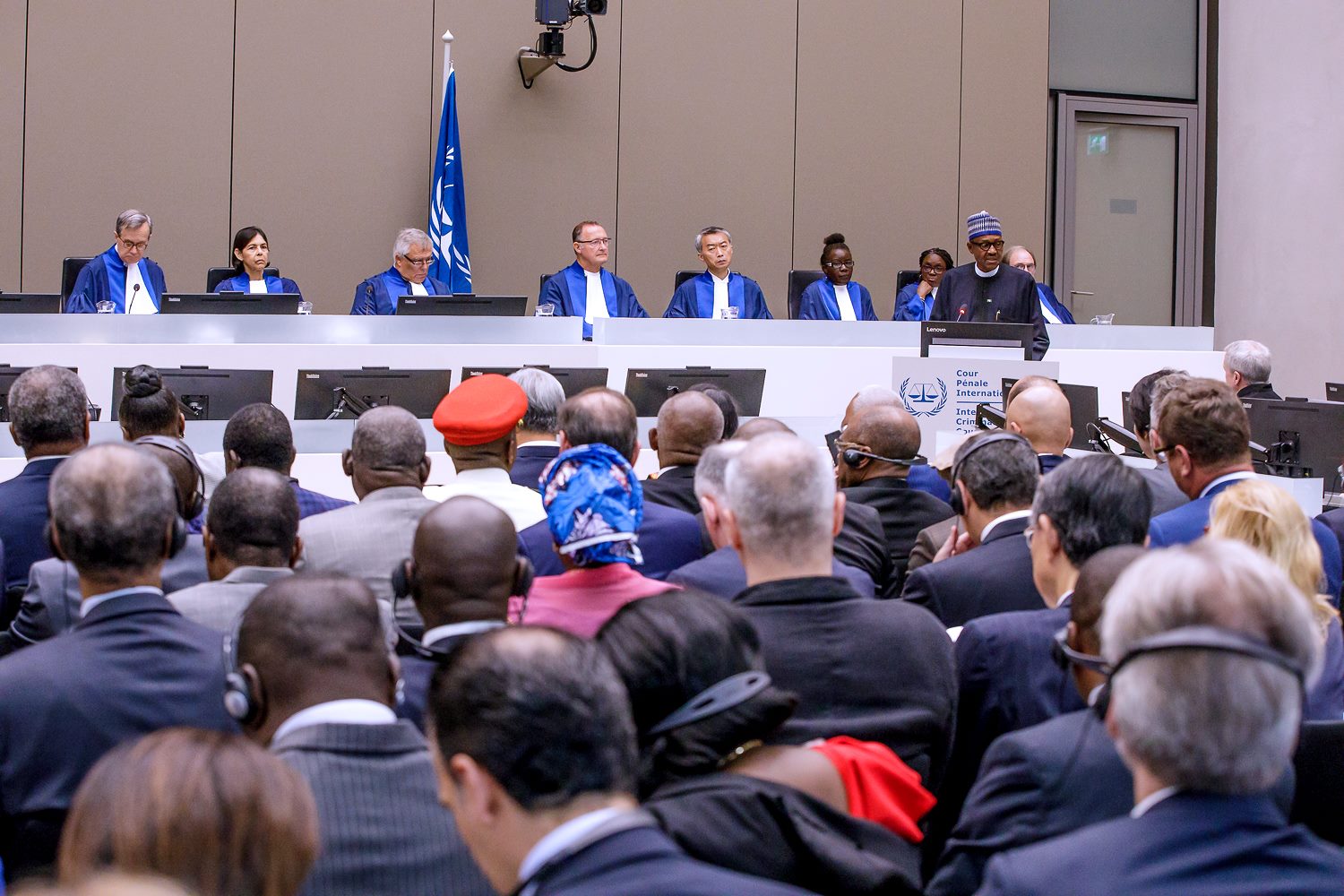President Muhammadu Buhari on Tuesday, July 17, 2018 at The Hague called on the 123 States Parties to the Rome Statute of the International Criminal Court, ICC, to support the court’s jurisdiction over serious cases of corruption and illicit financial flows.
Buhari made the call in a keynote at the Solemn Hearing to commemorate the 20th anniversary of the Rome Statute of the ICC.
Only problem is that the Rome Statute established the ICC to address four core international crimes – genocide, crimes against humanity, war crimes, and the crime of aggression. Ironically, Buhari’s regime has been accused of committing genocide against his own people when his army targeted a religious minority, the Shi’ites and murdered at least 800 of them in Kaduna – including babies – in December 2015.
In addition, mass graves of victims of Buhari regime killings have been uncovered in the South East as well. Activists say that as many as 300 Igbos have been extra-judicially killed by the Nigerian Army under the orders of General Buhari.
On-going in Nigeria, is genocide by Fulani herdsmen against the indigenous and Christian tribes of Southern Kaduna and Central Nigeria. Human rights watchers say as many as 8,900 Christian Nigerians have been murdered by the terrorist group under Buhari’s watch since 2015.
He said that a strong and effective ICC has the potential to send powerful messages about the international community’s commitment to accountability, a message that will be heard by both victims and perpetrators.
“Equally, a strong and effective ICC demonstrates the international community’s commitment to the rule of law.
‘‘A strong and effective ICC can also act as a catalyst for other justice efforts, expanding the reach of accountability.
“These could include serious cases of corruption by state actors that severely compromise the development efforts of countries and throw citizens into greater poverty.
‘‘These could also include cases of illicit financial flows where countries are complicit and obstruct repatriation of stolen assets. As the African Union Champion on Anti-corruption, these are issues dear to my heart.’’
He assured the international community of a free, fair and peaceful 2019 general elections in Nigeria, contrary to the tragic incidents that characterized the 2011 general elections, necessitating preliminary investigations by the ICC.
Referring to the tragic events in Nigeria in the aftermath of the 2011 general elections, which necessitated preliminary investigation by the Court, the President said: ‘‘Nigeria is preparing to conduct general elections in 2019…I assure you that all hands are on deck to prevent any recurrence of such tragic incidents.
“We shall do everything possible to ensure that Nigeria witnesses the conduct of free, fair and peaceful elections in 2019.’’
The President had commenced his address by thanking the judges of the Court for electing ‘‘a cherished son of Nigeria’’ as President.
‘‘Let me start by congratulating you, Judge Chile Eboe-Osuji, on your election as President of the International Criminal Court, and also thank the judges of the Court for electing you, a cherished son of Nigeria. Nigeria is very proud of you, Mr. President,’’ he said.
The Nigerian leader is the only President invited to grace the 20th anniversary of the adoption of the ICC Rome Statute.
NAN reports that out of the 123 States Parties to the Rome Statute of the ICC, 33African states while 19 are Asia-Pacific.
Others are 18 from Eastern Europe, 28 from Latin Ameica and the Carribean and 25 from Western European and other States
Over 25 high-level state officials, the President of the Assembly of States Parties to the Rome Statute, O-Gon Kwon, ICC Prosecutor Fatou Bensouda, ICC Registrar Peter Lewis, UN Legal Counsel Miguel de Serpa Soares, and other special guests, attended the event.







